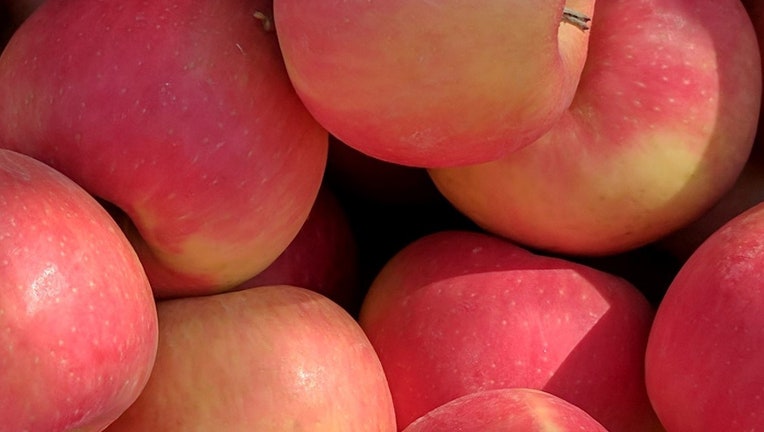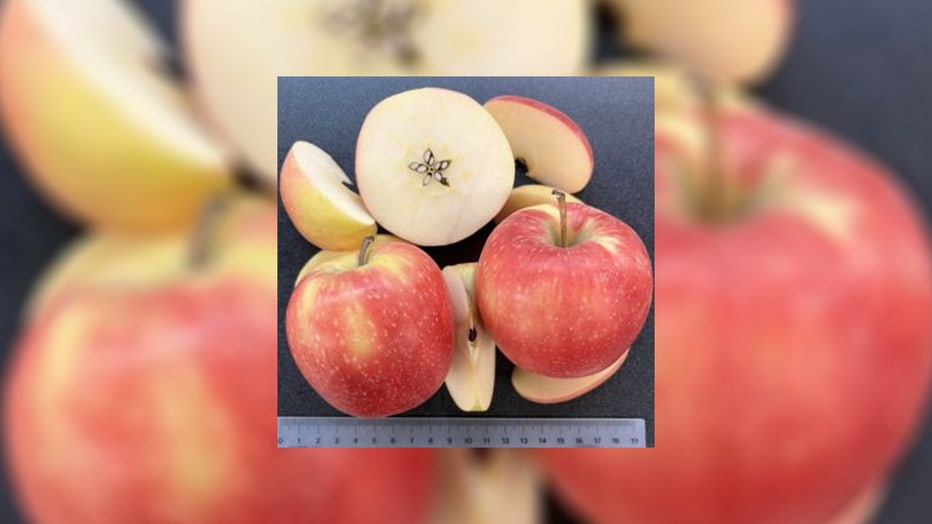Washington State University unveils new apple variety: WA 64

WA 64 apple (Washington State University)
Washington State University has introduced its latest apple creation, WA 64, a tantalizing blend of sweetness and tartness. This hybrid, a cross between the Honeycrisp and the Cripps Pink, widely known as Pink Lady, offers a refreshing and crisply firm texture.
Released for commercial licensing this summer, WA 64 is projected to hit store shelves in 2029. The university plans to collaborate with a partner in the coming weeks to provide trees to Washington growers. Additionally, a brand name for the apple is expected to be decided in 2024.
The WA 64 apple was crossed in 1998, and was chosen for its exceptional eating quality and storage qualities. The apple is pink and yellow, similar to its Pink Lady parent, though it is crisper and juicier.
"In its bite, it's more akin to Cripps Pink than Honeycrisp," stated Kate Evans, a professor and the apple breeder at WSU. "In consumer taste-tests, people have preferred its texture to Cripps. It's crisper than Cripps Pink."
One of WA 64's standout characteristics is its ability to retain its crispness even after months of cold storage. Like WSU's successful Cosmic Crisp (WA 38) variety, WA 64 naturally thins itself, lessening the labor required by growers. It also boasts a high packout rate, reducing the likelihood of apples being discarded due to bruising or punctures before reaching grocery store shelves.

Washington State University
Additionally, harvest time for WA 64 aligns closely with that of Golden Delicious, presenting an alternative for growers of the latter variety.
"The main focus of our breeding program is to provide new and improved apples that appeal to consumers and work for the Washington apple industry," Evans explained.
The name "WA 64" signifies its place as the 64th apple to advance to the second phase of WSU's three-phase selection process. This extensive procedure involves evaluating thousands of unique individuals, with only a few finalists chosen based on fruit quality and other factors.
While WA 64's debut might not rival the massive launch of Cosmic Crisp, which swiftly became one of the top-selling U.S. apple varieties, Tamsen anticipates an inventive naming process for the new apple. This procedure might include contributions from the WSU community and focus-group sessions.
"Apples aren't one-size-fits-all," Evans observed. "Different consumers have different preferences. Isn't it wonderful that we can release WSU varieties that meet more of those different preferences?"
Washington-bred Cosmic Crisp apples hit store shelves
The highly anticipated release of the first apple ever bred in Washington state is here: Cosmic crisp apples are available for purchase at some stores in western Washington. Locally, QFC's University Village location in Seattle and Sterino Farms in Puyallup got shipments on Sunday. The best way to see where they're sold is to follow Cosmic Crisp Apple on Twitter. Although Washington state grows the majority of the United States' apples, it's the first apple ever bred here. It's expected to be a game changer.

